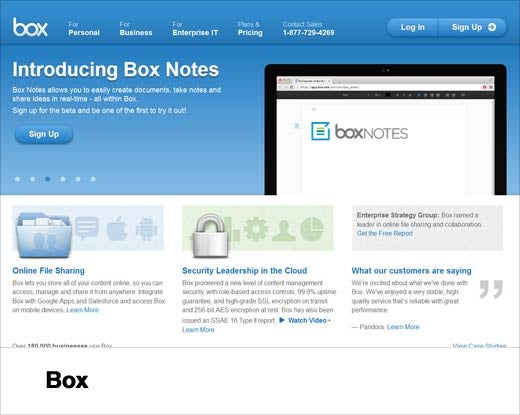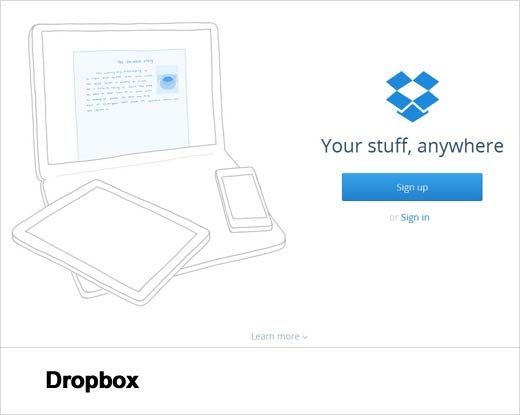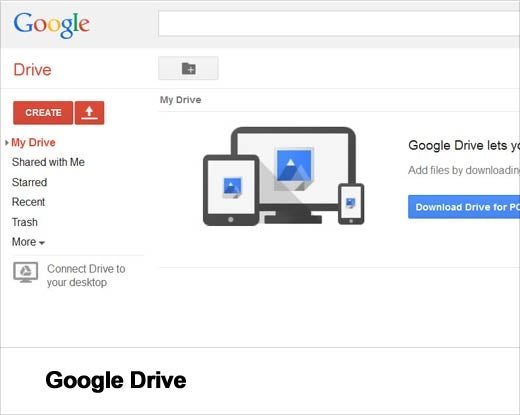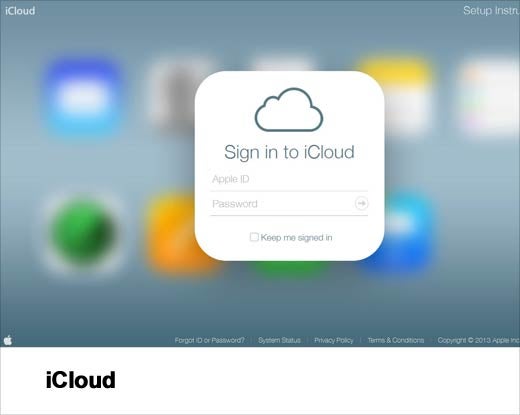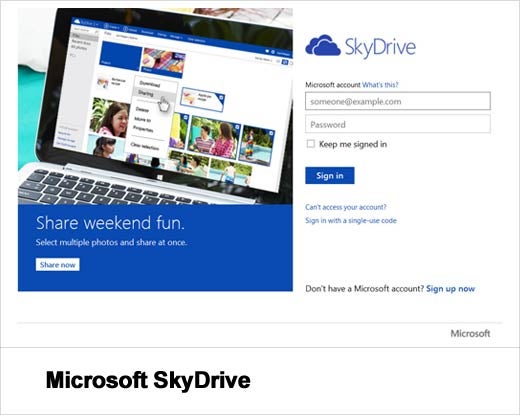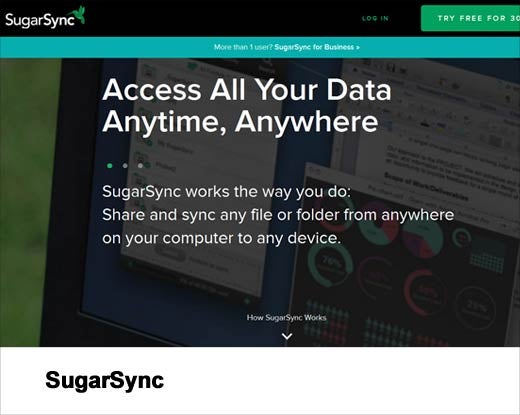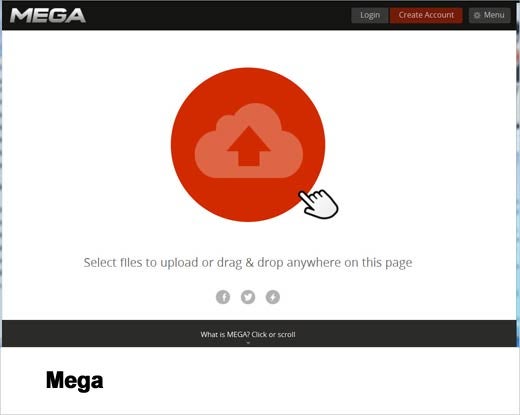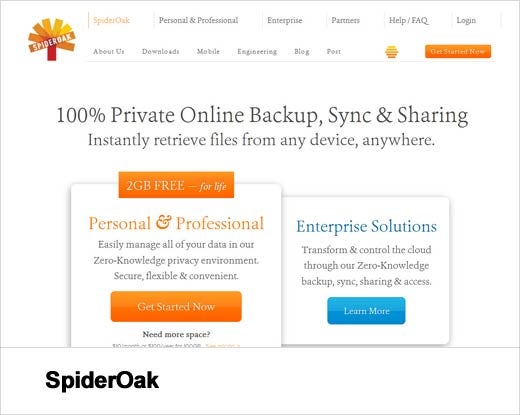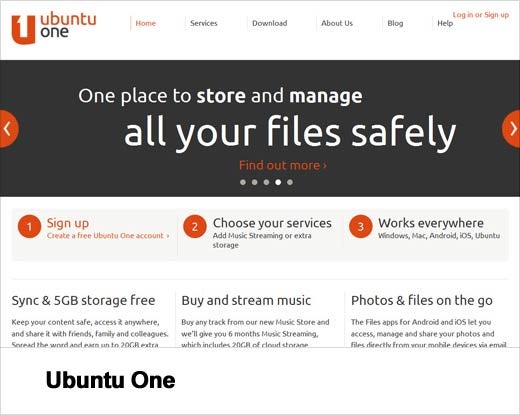Confused by the many cloud storage services out there? It used to be that we could choose among only a handful of cloud storage services, all of which offered basic file storage services. The proliferation of the cloud and the BYOD phenomenon have sparked a high level of interest in storing data online, however.
Today, many established cloud storage services can be easily counted, many of them offering advanced collaborate and synchronization capabilities. Here, we take a closer look at 12 cloud storage services that you can deploy for work and play.
Click through for 12 cloud storage services that you can deploy for work or play.
Amazon Cloud Drive
Amazon Cloud Drive provides 5GB of free storage, which can be accessed from a Web browser. Files are uploaded from a software client from Amazon that is available for Windows, OS X, iOS or Android devices – including the company’s Kindle Fire family of tablets. The Amazon Cloud Drive service is relatively basic at this stage, though the price of additional storage space is relatively reasonable. Several tiers of storage space upgrades are offering by the company: $10/year for 20GB, $25/year for 50GB, $50/year for 100GB or $100/year for 200GB.
Bitcasa
Designed for easy sharing of files and video streaming, Bitcasa stands out for its support for multiple mobile platforms such as Android, iOS and Windows Phone, on top of Windows and OS X. The service is free, with 20GB of storage for up to three devices. Paid options offer support for up to five devices, and range from $10/month for 1TB of storage for the Premium plan, to $49/month for 5TB of storage for the Pro plan. The most interesting feature, though, is definitely its Infinite plan, which offers infinite storage for $99/month. The service offers 180-day file version history for the paid version, or 30-day file history for the free version.
Box
Box offers business-centric capabilities in the form of fine-grained, content management level access controls and a 99.9 percent uptime guarantee. Data can be synchronized with Windows and OS X computers, with support for Android and iOS devices. Features such as two-factor authentication, Web access and sharing of files are baked in from the lowest tiers of service, while granular permission and access statistics are available for the Starter paid package. The Personal plan offers 10GB of free storage, or $10/month for up to 100GB, while Starter offers a range of permissions and 100GB of storage for $5/user/month. The Business plan starts at $15/user/month from a base of 1TB of data storage.
Dropbox
Easily the most recognized online storage service of the list here, Dropbox delivers online cloud storage in a highly functional service offering. Most platforms are supported by Dropbox, including Windows, OS X and Linux, as well as mobile platforms such as iOS and Android. The service itself doesn’t offer many frills, though the non-free version offers the possibility of version history and file recovery (may be optional add-on depending on exact plan). Dropbox offers 2GB of free storage, while its paid Pro plan starts at $9.99/month for 100GB, $19.99/month for 200GB, and $49.99/month for 500GB. Its Business plan starts at 1TB for five users with centralized billing and admin tools.
Google Drive
Google Drive integrates with both Windows and OS X, and also works with Google’s own Chrome OS, Android and the iOS platforms. The storage space is used on Google Drive for files, Gmail and Google+ photos. Files are kept synchronized automatically, and folders and files can be shared from any supported device or the Web interface. For personal use, Google Drive comes with 15GB of free storage by default, which can be increased to 100GB at $4.99/month or 200GB at $9.99/month. Multiple storage options are available, stretching all the way to 16TB for $799.99/month.
iCloud
Apple’s iCloud cloud storage comes with 5GB of free space, though this is used for a variety of uses such as photos, documents and as a backup repository. Upgrading this space costs $20/year for an additional 10GB, $40/year for 20GB, and $100/year for 50GB. Note that, due to how Apple ties its services to the iCloud, its storage capacity works differently from that of most other cloud services. For example, users who sign up for iTune Match can upload up to 25,000 songs that do not count toward the storage limit in iCloud. Indeed, it is not possible to access files in the iCloud on a traditional file system, but only through Apple devices.
Microsoft SkyDrive
Microsoft’s SkyDrive offers 7GB of free storage that can be organized by files and folder. SkyDrive can be accessed from the Web, as well as through various SkyDrive client apps. It really works best through its native integration with Windows 8, though, which was further enhanced in Windows 8.1. While not often mentioned, another benefit of SkyDrive is how the Web interface supports the ability for multiple users to view or even make simultaneous edits on various types of productivity documents without having to download the client. Additional storage space on top of the default free capacity costs $10/year for 20GB, $25/year for 50GB, and $50/year for 100GB.
SugarSync
SugarSync is a mature online cloud storage service that is also richly featured. The online cloud storage service offers multiple options to help you keep your files in sync, including the ability to designate any folder or files on your storage drive. Multiple revisions of a file are kept, which can also be shared either publicly, or to a select audience. Consumer versions of the service start at $7.49/month for 60GB, while the business version (with an admin panel) is priced at $55/month for 1TB and up to three users. SugarSync just this month did away with its free accounts, though users can try the service free for 30 days.
MediaFire
MediaFire is designed for easy sharing of files and supports the viewing of over 200 different file formats from a Web browser or mobile device. The service offers up to 50GB of storage for free, though this comes with a fair number of restrictions. These include ads, and the ability to upload files that are larger than 200MB. This isn’t enough for archival purposes, and certainly not enough for video; moreover, files can only be downloaded from a folder one at a time. Paid plans range from $4.99/month for 100GB to $49.99/month for 1TB. MediaFire supports the usual platforms such as Windows, OS X and Linux, as well as Android and iOS devices.
Mega
Established by Kim Dotcom, Mega offers up to 50GB of storage for free, which stands head and shoulders over the paltry offering of most cloud services. It is run from Auckland, New Zealand, and the company alludes to a greater focus on privacy than competing services. Mega doesn’t offer many frills in the form of file versioning or streaming, though it does offer the ability to share uploaded files. Stored files are encrypted on the service with AES, and Mega supports access from iOS and Android devices. The service is known to be a tad on the slow side, however, though this has improved since it was launched earlier in the year.
SpiderOak
For folks who require secrecy and security, SpiderOak delivers an online storage service that encrypts data even before it is uploaded to the service. This means that SpiderOak has no idea at all about what you are storing. The service is accessed through secure client software that works on Linux, OS X, Windows, and mobile platforms such as Android and iOS. For end users, SpiderOak offers 2GB of free lifetime storage, and up to 100GB at $10/month. In addition, the service offers “Enterprise” features that see the deployment of a virtual appliance on your network for integration with Active Directory / LDAP for single sign-on.
Ubuntu One
Despite its name, Ubuntu One is also available for use on Windows and the Mac platform. Depending on what you want, the service offers cloud storage on top of a music streaming service for $3.99/month for 20GB of storage. Android and iOS smartphones and tablets are supported; music streaming works with mobile devices only. If you want more storage, Ubuntu One charges $2.99/month for each additional 20GB block of storage. You can try out the cloud storage service for free with 5GB of storage. Ubuntu One is currently offering six months of music streaming and 20GB storage free if you buy any track from its Music Store.





